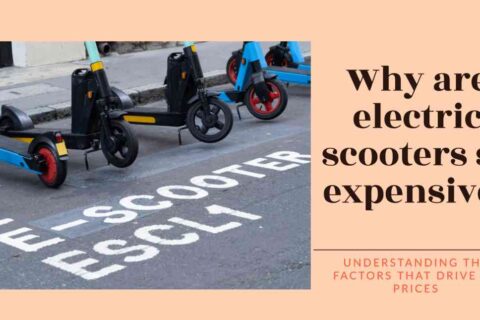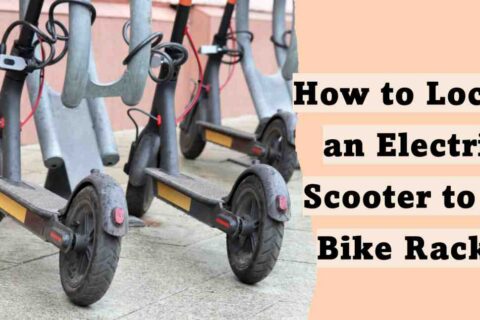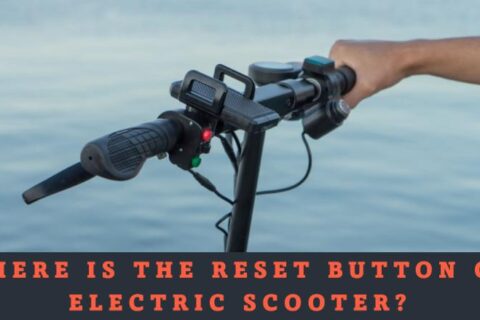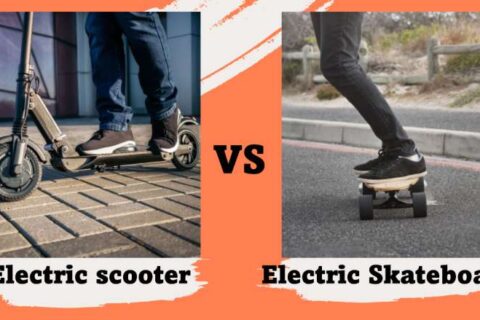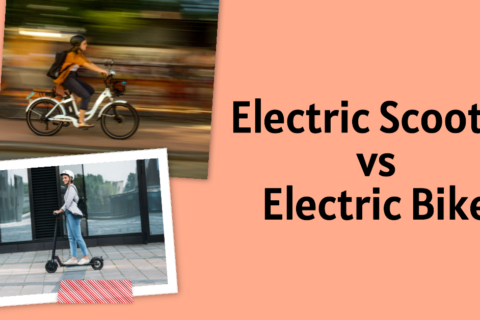It is important for e-scooter riders to be aware of the New Jersey electric scooter laws and best practices that apply to them in New Jersey. E-scooters also pose some challenges and risks for riders, pedestrians, and motorists. E-scooters can cause accidents, injuries, or damages if not operated safely and responsibly.
Here’s a key takeaway section in a table format based on the provided information:
| Aspect | Summary |
|---|---|
| Classes of Electric Scooters | Class 1: Max speed 19 mph, no license required. Class 2: Max speed 19-25 mph, requires a driver’s license or moped license. Class 3: Max speed 25-28 mph, requires a driver’s license or moped license. |
| Licensing and Permits | Class 1: No license needed. Class 2 & 3: Require valid driver’s license or moped license. Moped license criteria: age 15+, vision test, knowledge test, road test, fees. |
| Helmet Regulations | Class 1: Roads/bike paths with ≤ 25 mph limit. Class 2 & 3: Streets/highways with ≤ 35 mph limit. Sidewalks/pedestrian paths are off-limits, unless local laws permit. |
| Where to Ride | Class 1: Sidewalk riding allowed, max 6 mph, yield to pedestrians. Class 2 & 3: Sidewalks are generally off-limits, and may vary by location. Follow local rules. |
| Speed Limits | Class 1: Max speed 19 mph. Class 2: Max speed 25 mph. Class 3: Max speed 28 mph. Riders should align with traffic and speed limits. |
| Sidewalk Riding | Class 1 riders under 17 must wear helmets. Class 1 riders 17+ have the option. Class 2 & 3 riders must always wear helmets. Additional eyewear is recommended. |
| Age Restrictions | Class 1: Roads/bike paths with ≤ 25 mph limit. Class 2 & 3: Streets/highways with ≤ 35 mph limit. Sidewalks/pedestrian paths are off-limits unless local laws permit. |
| Penalties for Violations | Class 1: ≥13 years old can ride; under 17 must wear a helmet. Class 2 & 3: ≥15 years old to ride; under 18 requires driver’s license or moped license, scooter registration, license plate, and insurance. |

Table of Contents
ToggleUnderstanding Different Classes of Electric Scooters
Before we dive into the specific New Jersey electric scooter laws, we need to understand how they are defined and classified by the state. Not all electric scooters are the same, and different types of electric scooters may have different rules and requirements.
- Class 1: These are the gentle cruisers, topping out at a max of 19 miles per hour – perfect for those leisurely strolls where speed isn’t the main act.
- Class 2: Here we enter the realm of the moderate speedsters, hitting at least 19 miles per hour but graciously stopping short of 25 miles per hour – they’re like the Goldilocks of e-scooters, not too slow, not too fast.
- Class 3: Hold onto your handlebars, because we’re getting a bit more daring with these high-speed marvels clocking in at a minimum of 25 miles per hour and gracefully capping at 28 miles per hour – for those who feel the need for speed but still like a bit of moderation.
The class of your electric scooter determines what kind of license or permit you need to operate it, where you can ride it, and what safety equipment you need to wear. We will discuss these aspects in more detail in the following sections.
Licensing and Permit Requirements for New Jersey electric scooter laws
For the Class 1 low-speed scooters, you’ve got a smooth ride ahead. No license, no permit, no worries! Just hop on and pedal – well, maybe not pedal, but you get the drift. No need to jump through the hoops of registration, insurance, or flashing a driver’s license. Just remember, you’re in sync with the bike crew, so red lights are your cue to pause, and always flow with the traffic stream.
But wait, if you’ve upgraded to the zippier Class 2 or the jet-set Class 3 e-scooters, then the game levels up. Buckle up metaphorically because now you need a ticket to ride. Yep, that’s a valid driver’s license or a snazzy moped license from the New Jersey Motor Vehicle Commission (MVC).
To obtain a moped license, you need to meet the following eligibility criteria:
- Be at least 15 years old
- Pass a vision test
- Pass a knowledge test
- Pass a road test
- Pay the required fees
According to New Jersey electric scooter laws, you can apply for a moped license at any MVC agency that offers driver testing services. You will need to bring your birth certificate or other proof of identity, proof of address, Social Security number, and parental consent if you are under 18 years old. You will also need to bring your own moped or electric scooter for the road test.
Helmet Regulations in New Jersey electric scooter laws
Alright, let’s dive into the helmet requirement when it comes to electric scooting in New Jersey. Now, there’s a twisty road to follow based on your scooter class and your age – kind of like picking the right flavor at an ice cream shop.
So, here’s the scoop:
If you are rolling with a Class 1 low-speed scooter and you’re under 17, strapping on a helmet is a must. If you’re a cool 17 or older, it’s your call, but putting on that helmet is like adding a cherry on top recommended for a safe and sweet ride.
And if you are up to Class 2 or Class 3, the rules buckle down. No matter your age, the helmet is your copilot. Plus, don’t forget the shades or goggles unless your ride comes with a built-in windshield. It’s like a high-speed fashion statement for your safety.

Where to Ride: Areas and Restrictions
Just like picking a scenic route, a few factors steer your way like what kind of electric scooter you’ve got, where you’re scooting, and the New Jersey electric scooter laws in play.
For the Class 1 riders
Any road, highway, or bike path with a speed limit of 25 miles per hour or less is allowed for riding. But You cannot ride your e-scooter on any road or highway with a speed limit higher than 25 miles per hour unless there is a designated bicycle lane or shoulder. And don’t even think about taking your e-scooter to the sidewalks or pedestrian walkways, unless your local laws give you a nod.
For Class 2 and 3 rides
You’re good to ride on streets and highways with a speed limit of up to 35 miles per hour. But again, watch out for those faster roads without designated lanes or shoulders. Sidewalks, pedestrian paths, and bike lanes are off-limits unless your local area gives you a nod.
Speed Limits for Electric Scooters in New Jersey
For the easygoing Class 1 low-speed scooter, your speed limit is set at 19 miles per hour. Yup, that’s the legal cap. But remember, you’ve got to groove with the traffic and road rules too. If you’re on a bike path with a 15 mph speed limit, tone it down to match the rhythm.
Switching gears to Class 2 and Class 3, things ramp up a bit. Class 2 scooters max out at 25 mph, and Class 3, the speedy ones, hit the ceiling at 28 mph. Again, this is the legal top speed. But, as always, ride in harmony with the flow of traffic and the speed limits. If you’re on a 20 mph street, adjust your pace to keep the groove.
Sidewalk Riding Rules in New Jersey electric scooter laws
In some spots, scooters might hit the sidewalk, but there’s a twist. They might have to slow down to a max of 6 mph and always give way to pedestrians. And guess what? There could be special spots or times when scooters are either welcomed or told to take a break from the sidewalks.
Now, in other places, sidewalks might be a no-scoot zone. Instead, these scooters could be hitting the roads or bike lanes, like they’re part of the vehicle party. It’s like they’re putting on their grown-up shoes.
And here’s a heads-up also, some places might treat these scooters like motor vehicles and keep them far away from pedestrian areas. If you break the rules, you might end up with a not-so-fun fine.
If you do ride your e-scooter on a sidewalk where it is allowed, you should follow these tips and considerations:
- Ride slowly and carefully, and be aware of your surroundings.
- Give pedestrians the right of way, and keep a safe distance from them.
- Use a bell or horn to alert pedestrians of your presence, but do not startle or harass them.
- Avoid riding on crowded or narrow sidewalks, and look for alternative routes if possible.
- Dismount your e-scooter when crossing intersections or driveways, and follow the pedestrian signals.
- Park your e-scooter in a designated area or out of the way of pedestrians.

Age Restrictions: Who Can Ride Electric Scooters in New Jersey
If you’ve got a Class 1 low-speed electric scooter, you’re good to ride if you’re at least 13 years old. If you’re under 17, put on a helmet and have your folks nod. And always pedal along following the bike and vehicle rules.
Moving up to Class 2 or 3 scooters, you can hop on if you’re 15 or older. But if you’re not yet 18, here’s the deal: you need a driver’s license or a special moped license from the MVC. Your scooter needs to be registered there, with a shiny license plate, plus insurance proof.
Just remember different classes, different ages, and a few extra steps for the speedy scooters.
Penalties for Violating Electric Scooter Laws
The amount and severity of the fines and penalties may vary depending on the type and degree of the violation, the class of your electric scooter, your age, your driving record, and the discretion of the authorities.
Riding an electric scooter without a helmet may result in a fine of $25, while riding an electric scooter without a license plate may result in a fine of $100. Some violations may also carry additional consequences, such as community service, education programs, or jail time.
Violating electric scooter laws can have serious consequences for both riders and others. Violating electric scooter laws can cause accidents, injuries, damages, or conflicts with other people. Violating electric scooter laws can also result in fines and penalties, such as:
- Tickets or citations from the police or traffic officers
- Points on your driver’s license or moped license
- Suspension or revocation of your driver’s license or moped license
- Impoundment or confiscation of your electric scooter
- Civil lawsuits or criminal charges from other parties
Frequently Asked Questions (FAQS)
Can I ride my electric scooter on any road in New Jersey?
The rules vary by class. Class 1 can go on streets, highways, and bike paths with a speed limit of 25 mph or less. Class 2 and 3 can ride on roads with a speed limit of 35 mph or less.
Can I let my child ride an electric scooter in New Jersey?
Yes, children aged 13 and above can ride Class 1 scooters. However, for riders under 17, parental consent and helmet use are required.
Can I modify my electric scooter to go faster than the legal limit?
Modifying your scooter to exceed the legal speed limit is generally not recommended and may result in legal consequences. It’s best to adhere to the set speed limits to ensure your safety and compliance with the law.
Can I ride my electric scooter on pedestrian walkways?
Typically, electric scooters are not allowed on pedestrian walkways. However, local regulations may vary, so it’s important to check the rules in your area.
Are electric scooters considered motor vehicles in New Jersey?
Electric scooters are not always considered motor vehicles in New Jersey. Class 1 scooters are generally treated differently from Class 2 and 3 scooters when it comes to licensing and registration.
Can I ride my electric scooter at night in New Jersey?
Riding at night is often allowed, but you must follow the same rules as other vehicles, including using lights and reflectors for visibility.
Do I need to take any special training to ride an electric scooter in New Jersey?
As of now, there isn’t a specific requirement for training to ride electric scooters in New Jersey electric scooter laws. However, it’s always a good idea to familiarize yourself with the local traffic laws and safety guidelines before hitting the road.
Can I carry passengers in New Jersey on my electric scooter?
In New Jersey electric scooter laws, carrying passengers on electric scooters is generally not allowed. Most electric scooters are designed for single riders.
Can I rent electric scooters from companies like Lime or Bird in New Jersey?
Some cities in N have embraced electric scooter-sharing programs. Regulations for these services can vary by location, so if you plan to rent a scooter, make sure to follow the guidelines set by the scooter-sharing company and local regulations.
Conclusion
Electric scooters are a fun and convenient way to get around in New Jersey, but they also come with some responsibilities and risks.
Electric scooter riders need to be aware of the New Jersey electric scooter laws and regulations that apply to them and follow them accordingly.
Electric scooter riders also need to be respectful and courteous to other road users and ride their e-scooter safely and responsibly.



